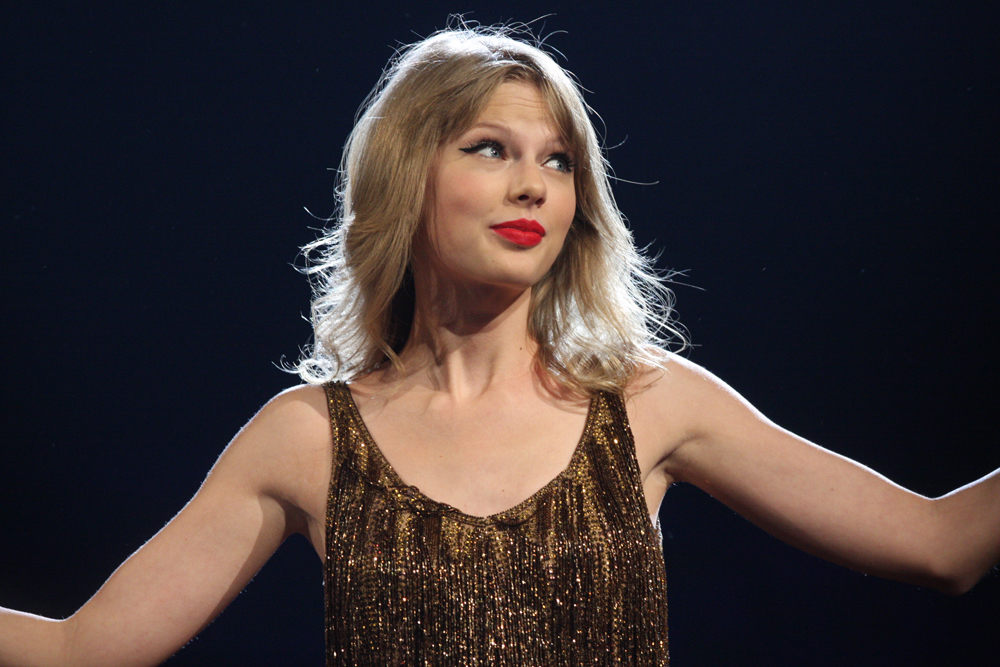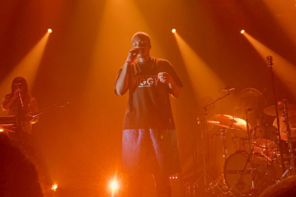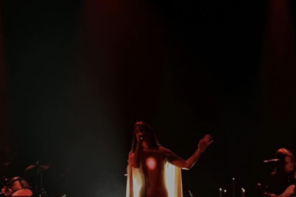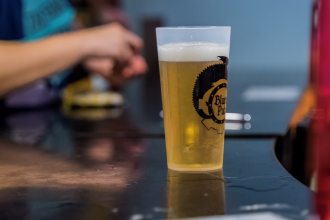“You’re On the Waitlist…But Hang Tight,” read the patronizingly hopeful email that disappointed thousands of Canadian Swifites who had registered for Ticketmaster’s Verified Fan Sale in hopes of finally securing tickets to Taylor Swift’s exclusive Era’s Tour. For the select fans who were lucky (depending on how you define lucky) enough to cinch the highly coveted presale code for one of her six Toronto shows, what came next was a lord-of-the-flies style fight against other Swifties and resale bots to obtain limited, and astronomically priced, tickets. While the mid-range seats sold from anywhere between $350-$450, floor tickets sold for around $700, and VIP tickets–because surely being a verified fan isn’t exclusive enough–went for up to a whopping $2,500. Prices for the ‘upper bowl’ (read: nosebleeds) ranged from an “affordable” $160-200 (really, what a steal!). For the rest of us commoners who didn’t get the code, we get to ‘hang tight’ in hopes of securing verified resale tickets; with the cheapest of these tickets going for over a thousand dollars, it’s not looking good.
…as the price of concerts continues to increase across the world, the proportion of the population that can afford them continues to decrease.
This Toronto-Taylor-Ticketmaster situation wasn’t an outlier, but is actually pretty standard as live concerts grow increasingly more expensive and inaccessible for average listeners. When tickets recently went live for Taylor’s Vancouver shows it was the same situation, with fans scrambling for pricey tickets as they were rapidly scooped up by resellers and scalpers. And it’s not just Taylor Swift – as any fans who have tried to get concert tickets to any major artists (Beyonce, Harry Styles, Drake, Morgan Wallen) in the past few years would know, you are pretty much out of luck unless you’re willing to shell out a few hundred bucks minimum. While US fans might fare a little better than those of us in Canada simply due to a wider access to tour dates, they too are left at the mercy of inflating ticket prices and a rampant resell problem. And as the price of concerts continues to increase across the world, the proportion of the population that can afford them continues to decrease.
Why are tickets so expensive? Market research points to a couple of major factors, although Ticketmaster–which has held an unfettered monopoly over the concert industry since it merged with Live Nation over a decade ago–has consistently borne the brunt of the blame and backlash. First, there is the issue of ticket prices themselves: between inflation and increasingly elaborate production values, the face value of tickets themselves have increased exorbitantly since decades past. When a fan tries to purchase a ticket through the Ticketmaster site this steep cost only jumps, as a variety of fees, which average ranging from 27% to as much as 75% of the original ticket price, are tacked on to the face-value cost. To make matters worse, Ticketmaster reserves as much as 90% of tickets for the secondary market – credit card companies, promoters, radio stations – from there, tickets can be marked up beyond their face value. Finally, perhaps the leading issue in skyrocketing prices is the $5 billion resale and scalping industry, through which bots and professional brokers can buy tickets through the site and then resell them for astounding mark-ups of anywhere from 50% to 7,000%.
…between inflation and increasingly elaborate production values, the face value of tickets themselves have increased exorbitantly…
A few solutions have been proposed to topple the Ticketmaster monopoly. In the United States, the issue made it to Capitol Hill. In January of this year, Congress held a hearing (prompted by a site-wide crash during one sale of Taylor Swift tickets) to investigate Ticketmaster and discuss potential options to make tickets more accessible to fans. Proposals included the breakup of the Live Nation-Ticketmaster amalgamation, caps on fees, and legislation that would either make tickets non-transferable and prevent resale altogether or, at the very least, impose limits on the number of transferable tickets provided. Many countries in the EU have already taken such action, enacting legislation to prohibit resale and curb cross-border ticket sales.
That being said, while it is understandable that those of us who have been disappointed one too many times by Ticketmaster’s lack of tickets or exorbitant prices would turn to the site as a scapegoat for this concert crisis, it is unlikely that targeting Ticketmaster would entirely solve the problem. Rather, the issue, and any potential solutions, need to be viewed holistically and consider the role of fans themselves in contributing to the increasing price of live music.
As Ken Wong, a business professor at Queen’s University, explains, “whatever the market will bear decides the price.” And, in an age of parasocial relationships and celebrity obsession, fans are certainly allowing the market to bear. Despite increasing prices, the demand for live music, particularly in a post-covid world, is only growing. As shows continue to sell out, it seems that fans are willing to cough up the equivalent of a month’s rent to see their favourite artists live. Beyond the ticket prices themselves, many fans travel across the country or even internationally to attend concerts, adding exponentially to the cost of the experience. A study conducted in February 2023 by an online ticketing platform found that out of 4,000 Americans who had attended a live event in the past year, 38% were willing to travel within state, while 17% were willing to go out of state for a concert.
And, in an age of parasocial relationships and celebrity obsession, fans are certainly allowing the market to bear.
Maya Jimemez, a Swift fan from Los Angeles, flew 300 miles to attend the show in Santa Clara to avoid what she refers to as the “LA Ticketmaster Bloodbath.” Ashley Stewart, a mom from the Maritimes who scored Eras tickets for herself and her daughter, will be flying across the country to see the show next fall – taking into account travel, food, and accommodation, she expects the total costs of the trip to reach around $5,000. If a concert gets canceled at the last minute, as in the case of SZA last month, these fans who have traveled thousands of miles and spent thousands of dollars are out of luck. Even if the concert is refunded, they still lose out on the money put towards travel and accommodation. If the show is rescheduled, it’s often weeks, or even months later. Fans are forced to choose between missing the show altogether or taking another financial hit in the form of additional travel expenses. And yet, dedicated concertgoers seem ready to take the risk. As long as they are, it is unlikely that concert prices will drop anytime soon (So, it appears that, unfortunately, Ticketmaster can’t take all the blame).
The combination of high prices and dedicated fans has led to another phenomenon: the disappearance of casual concert-going. Instead, increasingly exclusive live-music events have become another way for the upper echelons of society to flaunt their wealth and status, or for the superfan to prove their adoration for the artist. Audiences outside of these categories are typically excluded, either unable to afford steep ticket prices or too casual a listener to justify the cost.
And the events themselves are anything but casual. With gaudy over-the-top sets, costumes, and light designs, concerts aren’t just live music (one might even argue that the music itself takes a backseat) – they’re hundred million dollar productions. Among the fans, there is an atmosphere of frenzied intensity. Having spent exorbitant amounts and travelling thousands of miles to witness these exuberant displays of wealth, there is immense pressure on the artist to create the best night ever (and perhaps disproportionate disappointment if it fails to live up to expectations). Many fans line up for hours, or even days before the doors open, clambering against each other in a blinged-out bloodbath for the best view. Once the show starts, the energy is electric–if maybe a little culty–as fans belt out every word to a two hour setlist in unison with their favourite artist.
…it seems unnecessary that the live-music experience has become synonymous with an almost dystopian level of intensity and exclusivity.
This isn’t to say that concerts or their attendees are inherently problematic. There’s no denying that for those able to attend, these events are a once-in-a-lifetime opportunity. And there’s certainly nothing wrong with saving up for a special experience, especially if you have the means to do so. However, it seems unnecessary that the live-music experience has become synonymous with an almost dystopian level of intensity and exclusivity.
So please, let’s bring the casual concert, with reasonably priced tickets accessible to the general public. While it’s difficult to say what this will ultimately take –whether it is legal regulations or the end of the Ticketmaster monopoly (or a society-wide pact to maybe not be willing to pay such astronomical prices for tickets?) – it’s time for a big change. Because concerts shouldn’t be about proving your economic status, or that you love an artist more than the person next to you, but about bringing people together to appreciate good music.








